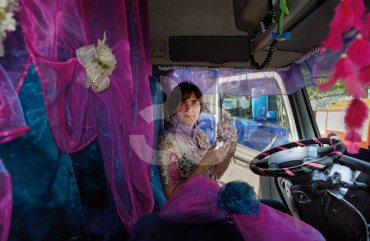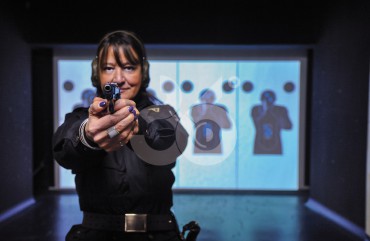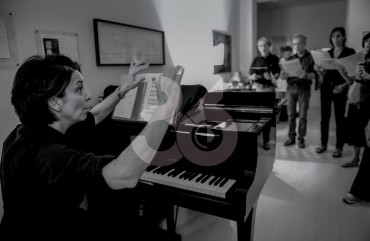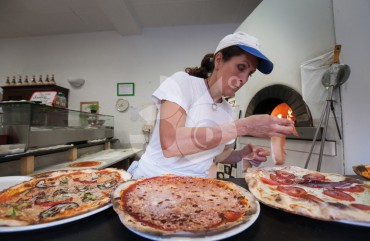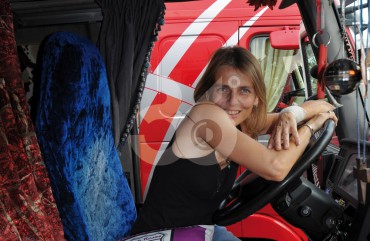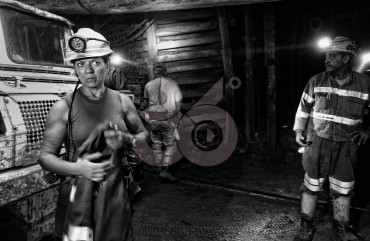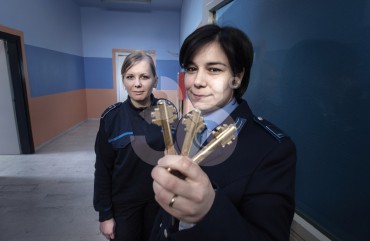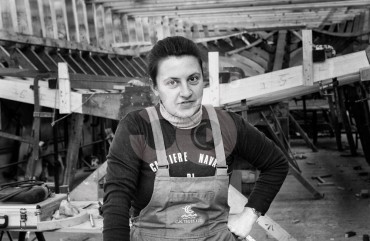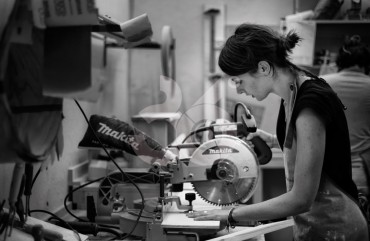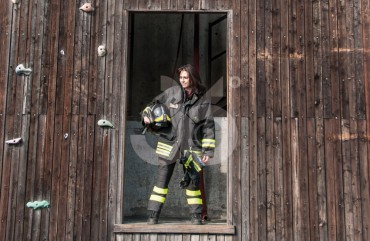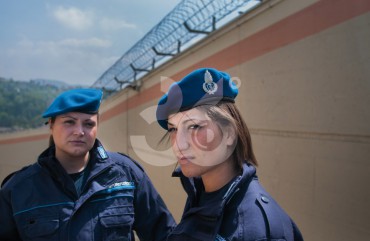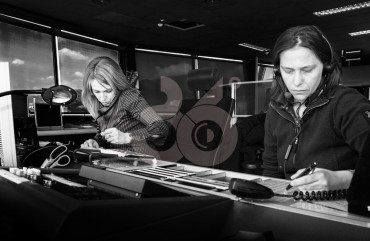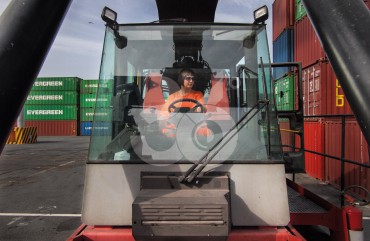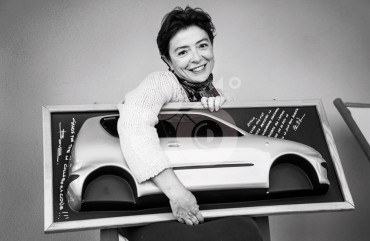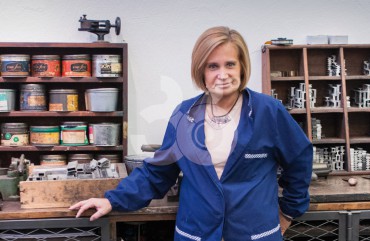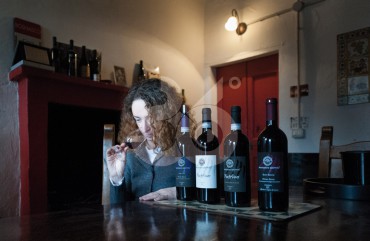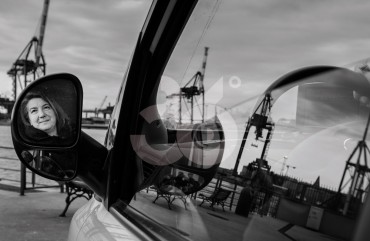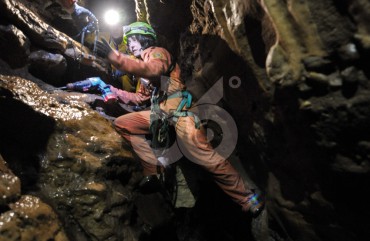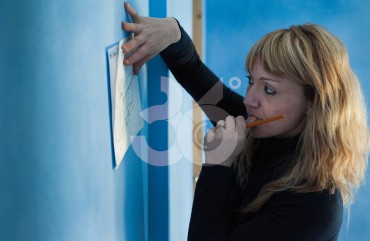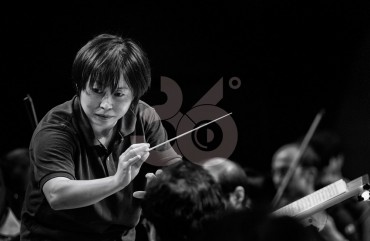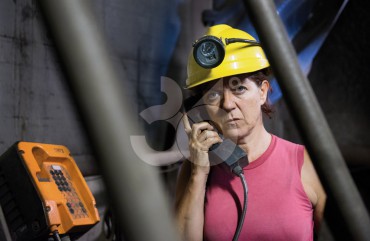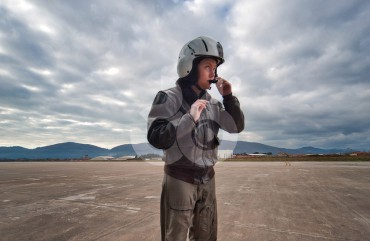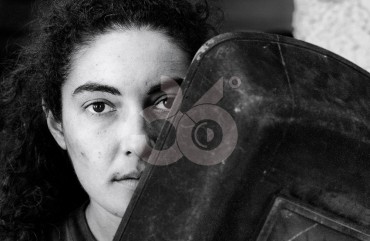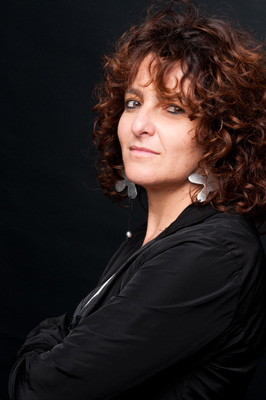The Project
Female jobs. Male jobs. The job market is genderised, but how far is it still sexist?
Sexism has become more and more imperceptible, elusive and difficult to demonstrate. One perceives it but it cannot be seized; one experiments but often it cannot be reported. The marginalisation of women is certainly less brazen and widespread than just forty years ago, but perhaps it is just for this reason, more dangerous and insidious. So, sexism permeates even the contemporary world of work, camouflaging itself silently within defined markets of borders that remain invisible to our gaze, at least until someone – male or female – challenges the rules (deliberately, by chance or out of necessity) and oversteps them.
So, what happens to the women who challenge the symbolic order by overstepping these borders that are as much invisible as persistent?
What does it mean to be a woman in jobs that society persists in thinking of and representing as “male”. “Jobs for men”?
Some women, extraordinary in our opinion, have chosen to tell us about their struggles, the hurdles, the (too) often found aggressiveness, but also their dreams, their pride and their passion. They did so with enthusiasm and generosity, giving us pictures, thoughts and words that we will try to share.
Research and texts: Emanuela Abbatecola
Photographs: Associazione Culturale 36° Fotogramma
A project of visual sociology
The visual sociology laboratory of the University of Genoa was born from a desire to experiment and from a curiosity for research techniques considered non standard, but also from a widespread intolerance of an academic production that toils to leave the walls of the university and measure itself with a wider public. Audiovisuals and photography are, from this point of view, more immediate languages, capable of communicating at different levels. See all »
Photography in Sociology
Photography and sociology were born in the same period of history (the second half of the nineteenth century) and share the same curiosity with regard to society. From this point of view, it is significant that, in the period 1896-1916, the American Journal of Sociology decided to publish a good 31 articles accompanied by photographs (Faccioli, 2001). See all »
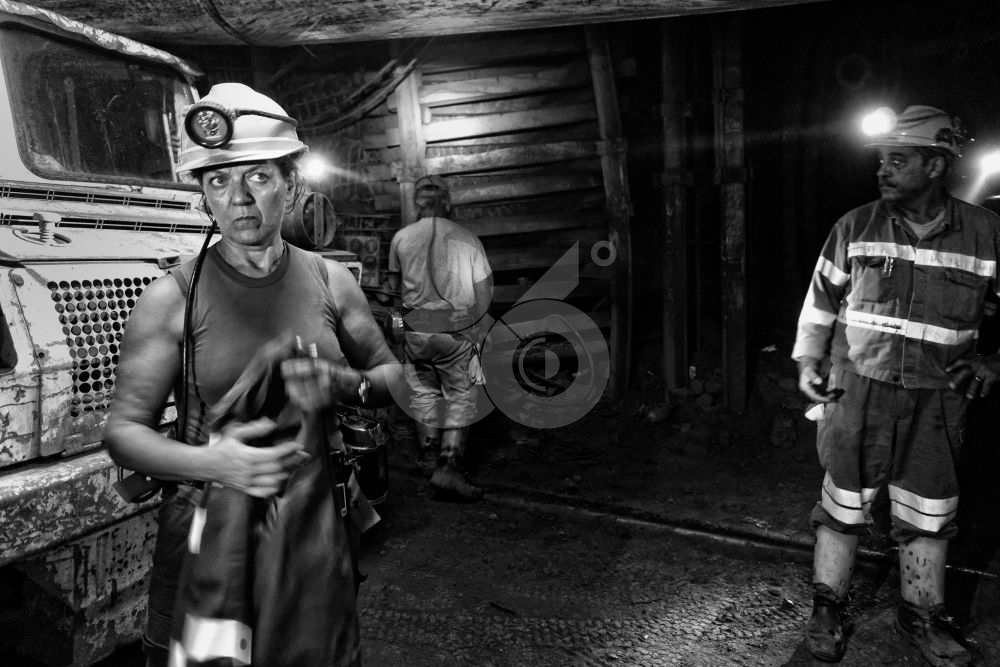
The Exhibition
DONNA FABER
MALE JOBS, SEXISM AND OTHER STEREOTYPES
The exhibition, outcome of a project of visual sociology coordinated by Emanuela Abbatecola, is the result of the cooperation carried out by the Laboratory of Visual Sociology of the University of Genoa and 36° Fotogramma Photographic Society, with the support of the Genoa Municipality.
The project, which investigates sexism in the world of work and the difficulties encountered by women doing jobs that society continues to represent as male, includes portraits of women employed in “men’s” jobs taken in their working context and quality interviews, some extracts of which, recited over the pictures, are proposed in the exhibition.
The exhibition may be exhibited free of charge upon request by organizations, institutions and associations for purposes consistent with the theme of the research.
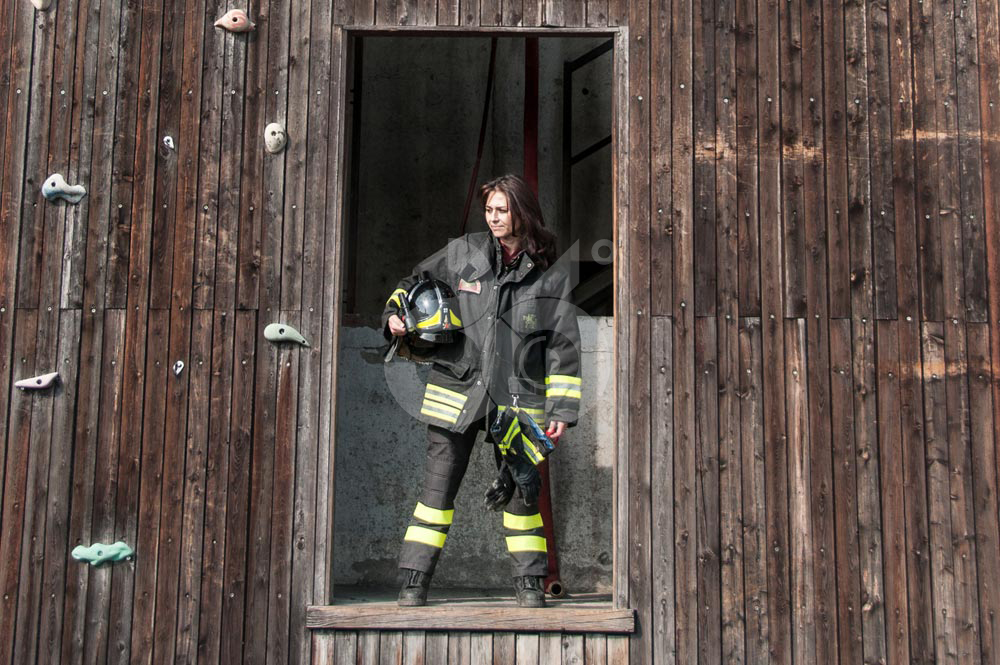
Previous editions:
Milano, Fondazione Feltrinelli (nell’ambito di Bookcity 2023)
18-21 NOVEMBRE 2023
See the gallery »
Triora (IM), Museo Etnografico
GIUGNO – SETTEMBRE 2023
Bergamo. Palazzo della Provincia, Sala Manzù (Iniziativa CGIL – Camera del Lavoro)
Dal 5 al 16 Marzo 2022
Foggia – Palazzo Dogana – Sala del Tribunale della Dogana
Piazza XX Settembre
From 9 to 14 MARCH 2017
Castello di San Giorgio Canavese
1° Forum internazionale delle donne al governo della politica e dell’economia
30 JUNE – 2 JULY 2016
University of Illinois at Chicago Science and Learning Center 845
W Taylor Street, M/C 180 Science & Engineering South Building Chicago, IL 60607
27 AUGUST 2015
I.T.T. Michelangelo Buonarroti, Via Brigata Acqui 15, Trento
15 NOVEMBER 2014 – 31 JANUARY 2015
Palazzo Ducale, Piazza Giacomo Matteotti 9, Genoa
8-24 NOVEMBER 2013
See the gallery of photos of the inauguration »
Press review:
Mind THE GAP
Donna Moderna, n. 47 del Novembre 2023
Quelle donne che sfidano i mestieri da maschi
La Repubblica, 19 Settembre 2023
Perchè non va bene dire revenge porn: è un concetto sessista
Il Secolo XIX, 19 Settembre 2023
Le donne, Sesso forte, In fabbrica o sul tir meglio dei maschi
(QN – Quotidiano Nazionale)
Sessismo e altri stereotipi nel mondo del lavoro, Foggia ospita progetto “Donna Faber”
(l’Immediato)
SERVIZIO DONNA FABER 11 MARZO 2017 TG
(Tele Foggia)
Lavori da uomo e da donna: ancora pregiudizi di genere
(InvestireOggi)
Fabbre, minatore o vigili del fuoco Quando lei fa un mestiere “da maschio”
(La 27 ora)
The book
Donna faber. Lavori maschili, sex-sismo e forme di r-esistenza
di Emanuela Abbatecola (Autore) – Feltrinelli, 2023
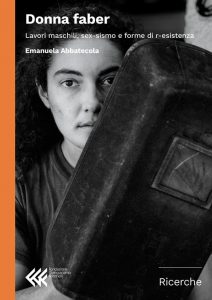
What does it mean for a woman to cross boundaries by entering professions that society perceives as masculine by definition?
“This tendency to tell the world from a male point of view does not mean not dealing with women (or at least not anymore), but rather rather to sectorialize analyses of women’s sub-universes, treating everything about women as a dimension in its own separate.”
“Thanks to essays like Donna Faber the attention, now long since high, on the phenomenon is brought to every level: language is the space privileged, but there are the work, the expectations, the freedom to contradict themselves, to react and to rebel.” – Alessandro Tacchino for Maremosso
Teacher, seamstress, cashier, secretary are professional femininities that have always existed, yet we struggle to name as feminine those professionals who work in male-dominated fields: mechanics, miners, truck drivers, orchestra conductors seem not to exist, confirming the idea that there are men’s jobs and women’s jobs. women. Pink and blue, from childhood to adulthood, from school to retirement. In a still highly gendered world of work, what does it does it mean for women to deconstruct stereotypes and violate the boundaries of professions perceived as masculine? What violence do they experience and what practices of resistance do they act? The goal of the book is to answer these questions in light of the results of a qualitative research socio-photographic, conducted in Italy over the past decade by interviewing and photographing women in men’s jobs. In the background, an Italy in tension between new feminisms and anti-gender crusades with reactionary reactionary politics.
Autore: Emanuela Abbatecola
Editore: Feltrinelli
Collana: Fondazione Giangiacomo Feltrinelli. Ricerche
Anno edizione: 2023
In commercio dal: 22 settembre 2023
Pagine: 192 p., Brossura
EAN: 9788807990892
The Research
Transgression and sexism
When sexual bodies cross the invisible, symbolically insurmountable, borders that make up the labour market, sexism, ever present, but usually impalpable and silent, re-emerges forcefully as if to re-establish a violated order.
Women and men who choose (or find themselves) in jobs not culturally conforming to their own gender, violate an unwritten symbolic domain, in both cases bringing into discussion the power of male over female, as if such a domain were weakened by contamination with the female in non-neutral environments. See all »
When she’s the one who transgresses
The invalidation often starts as a form of disclosed prejudice, for which entering a profession is refused to a woman since she is a woman. In this case, Her request results so implausible and outrageous to the eyes of the employer so as to not even need to be concealed. See all »
Sexism, sexuality and violence
The dominating culture induces us to imagine sexuality as an element founding the identity of man and a potential instrument of power over women and over masculinities considered weak. Male sexuality, thus is, still as a duty, to confirm to oneself and to others – in first place to other men (Kimmel, 2002) – of being suitably male. See all »
Bodies on show
The central position of women’s bodies very often appears as the fulcrum of the construction processes of female identity, thereby becoming a sort of device for construction of the boundaries of gender and power.
A woman’s body, as we were told, is very often the subject of unwanted attention, a symptom of a sexist vision of the relations between genders, and when insistence becomes too unbearable, a body becomes a heavy burden to carry, so it needs to be disguised. See all »
Resistance strategies
Living with the sexist climate of some places is tiring, and a body easily becomes a scene to be prepared. Resistance strategies can be different. I can wear a mask-dress (Stagi, 2010) so as to interpret femininity suitable for the male imagination, annulling or dosing my female traits. See all »
Maestra (normally refers to an elementary school teacher) or maestro (normally refers to an expert in some profession) d’ascia? Notes on a non-sexist use of the Italian language
The Italian language usually declines all professions that are not specifically female as male, especially if they are authoritative and/or prestigious, even if reference is to a person of female gender. The justification adopted is that male is grammatically neutral. In reality the motivation is more complex and regards the hierarchisation of female and male in our symbolic domain. See all »
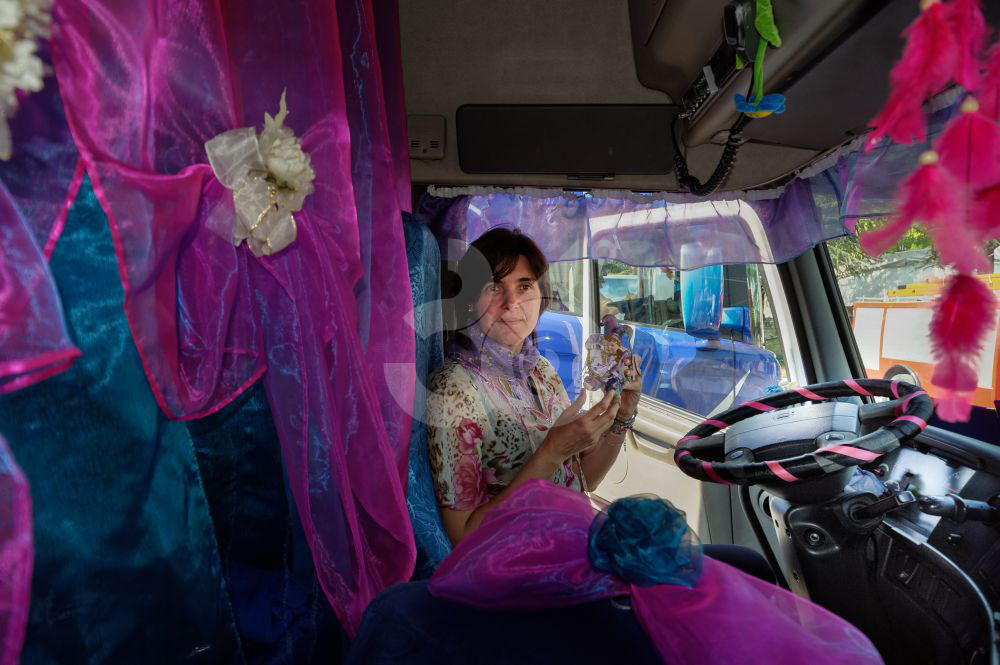
About us
Visual Sociology Laboratory
The Visual Sociology Laboratory of the University of Genoa is an experimental space born from the need to use photography and audiovisuals as languages for the dissemination of the results of social research, and the still camera and video camera as investigation tools.
www.laboratoriosociologiavisuale.it
Emanuela Abbatecola
Sociologist, associate professor and editor in chief of AG–AboutGender, International Journal on Gender Studies (www.aboutgender.unige.it/ojs), teaches sociology of labour at DISFOR, School of Social Sciences of the University of Genoa.
Her research activities mainly concern labour, migrations, trade and discrimination in a gender perspective, topics on which she is working on national and European research projects and she has written numerous papers.
Since 2008 she has been an active part of the Visual Sociology Laboratory of the University of Genoa (www.laboratoriosociologiavisuale.it), under the scope of which, together with her colleagues Luisa Stagi and Luca Queirolo, a documentary entitled Yo non me complico, about homophobia, migrant homosexuality and transgender, with the direction of Alessandro Diaco (2010), and an interactive exhibition on women in male professions, with the title Lady Truck. Women at work! (2011).
Associazione Culturale 36° fotogramma
The 36° Fotogramma Cultural Association was born in Genoa in 1974.
The activity of the association consists of the organisation of collective shows, personal shows, participation in competitions, drawing up of books of photographs, organisation of photography courses and workshops.
Particular consideration is paid to participation in cultural events in Italy in collaboration with public bodies and institutions such as the Municipality and University of Genoa.
Among the most recent activities, one recalls participation on setting up the Festival del Bosco, (Festival of the wood) promoted by the Liguria Regional Authority in collaboration with the European Union (2008); the photographic activity alongside the Festival della Poesia (Festival of Poetry) since 2004 and that under the scope of the jazz festival Giovani in Jazz, in collaboration with the association Jazz Lighthouse and Sestri Jazz (since 2008); the project on the theme of astronomic photography carried out with the Cassini High School in Genoa (2011); organisation of “Immagin’Azione” at the Sant’Agostino museum in Genoa (2011); which witnessed the participation of photographers of international repute in seminars and shows in multi-vision; collaboration with the Festival della Scienza (Festival of Science) in 2012 and with Palazzo Ducale under the scope of La Storia in Piazza (2013).
Via Carloforte, 23 R – Genova
36fotogramma@gmail.com
www.36fotogramma.org
Exhibition Supervisor: Federico Montaldo
The following took part in the DONNA FABER project:

Furio Belloro

Susanna Bongiovanni

Carmelo Calabria

Marco Casonato

Fabrizio Cavallaro

Gian Piero Corbellini

Luca Doglio

Marco Dragonetti

Raffaele Fazio

Stefano Fazio
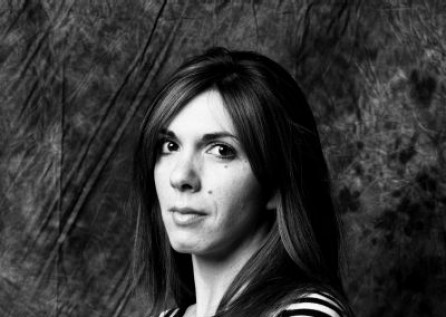
Sara Ferro

Christian Melchiorre

Federico Montaldo

Emilio Morabito

Riccardo Peritore

Rosanna Ponsano
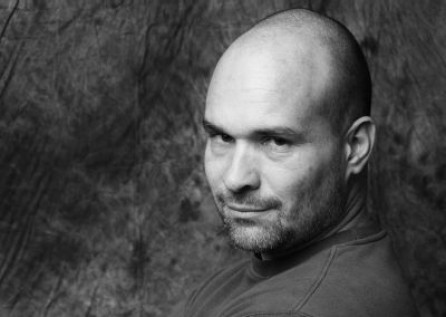
Marco Tomassini

Francesco Zoppi
ONE THANKS ALL THE WOMEN WHO GAVE THEIR PICTURES BY TAKING PART IN THE PROJECT
In collaboration with Associazione Culturale 36° Fotogramma and the Laboratory of Visual Sociology of the University of Genoa. With the support of the Genoa Municipality, Genova Palazzo Ducale Foundation for Culture, AG-AboutGender Laboratory and the University of Genoa.
All text and photographs contained in this website is reserved.
Is forbidden any form of publication and / or distribution without permission.
© DPSONLINE Srl
Via Tomaso Pendola 7/1 16143 Genova - T. 010 508915 - F. 010 504704 - info@dpsonline.it - www.dpsonline.it
P.I./C.F. 01921150999 - Cap. soc. 10.000,00€ i.v. - Reg. Impr. 01921150999 - C.C.I.A.A. 01921150999/2009 - R.E.A. 445492 di GE
Cookies - Privacy

